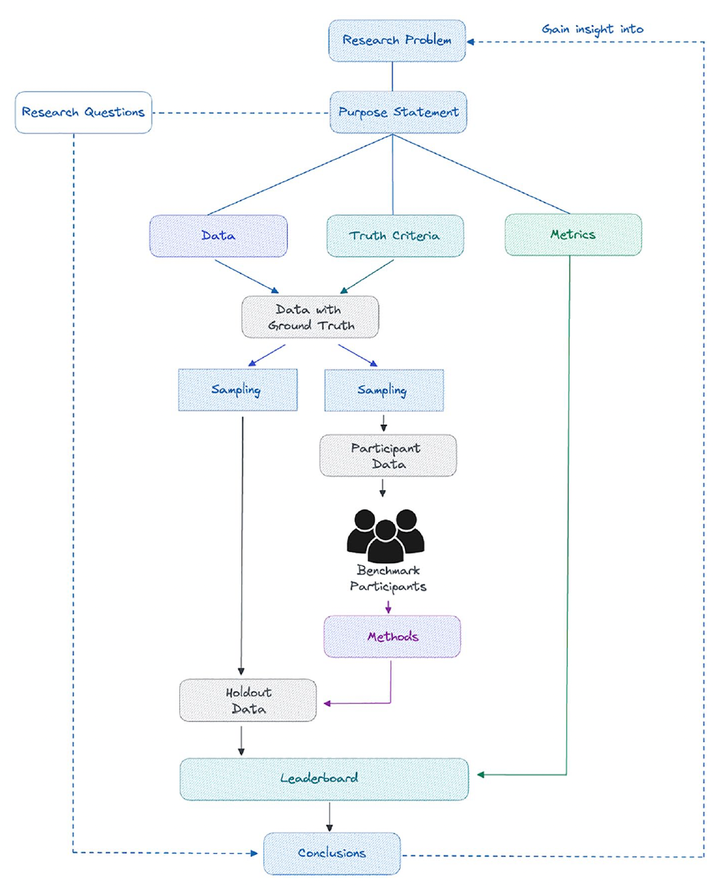The potential of benchmark challenges in the social sciences
 Image credit: [Paulina Pankowska]
Image credit: [Paulina Pankowska]
Abstract
Social scientists aim to create explanations of the world. For each social phenomenon, scientists have proposed a myriad of theories to explain its working mechanisms. Traditionally, these theories are tested by generating hypotheses, translating them into a statistical model, and assessing the significance of the model’s coefficients. Such an approach, however, often leads to the specification of a large number of (at times contradictory) models, all asserting that they capture the same theory. As things currently stand, there is no framework that allows for a comparison of these models. In this article, we argue that benchmarks can serve as a standard frame of reference that can help to determine which models fit better with empirical observations in a specific context. A benchmark is a standardized validation framework that allows for a direct comparison of the prediction accuracy of various models that address the same research problem. We outline the potential of organizing benchmark challenges in the social sciences and provide recommendations for their utilization.